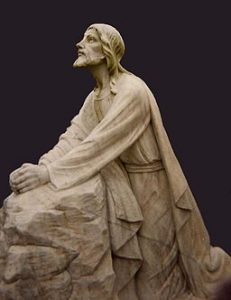by Scott Leys
“I am Yahweh your God, who brought you out of the land of Egypt, out of the house of bondage.” Exodus 20:2 (World English Bible)
The Hebrew language is a language short on vocabulary. Often times a single Hebrew word can have many nuances of meaning depending on suffixes, prefixes, and context. One word may serve to convey many different ideas or word pictures, making for a very poetic, but not a very concise language. There is one glaring exception to this rule though.
Have you ever stopped to consider what our Heavenly Father means when He identifies Himself as our God? In the passage above, the Hebrew word translated as God is Elohim. To the Hebrews it carried the connotation of Yahweh as the creator of all things. Interestingly there are several other Hebrew words that have been translated as God in our English versions of the Bible. So while the Hebrew language as a rule is word poor, the writers of the Hebrew Scriptures under the inspiration of the Holy Spirit, were very specific in assigning attributes to the Almighty.
Other Hebrew words translated as God include: El(identifying Yahweh in all His power and magnificence); Eloah(identifying Him as the mighty one to be worshiped, contrasted with false gods); Elyon(usually translated Most High God – identifying Him as the possessor of heaven and earth); and El Shaddai(usually translated as God Almighty – identifying Him as our nourisher and all bountiful giver).
What significance does this have for us? Our Father intended for us to know Him in a very personal and intimate way. He shows Himself to us by letting us in on these different personality traits. He wants us to understand every aspect of who He is and what He does for us. Many of us have a personal relationship with our Savior Yeshua, but we sometimes fail to realize Yahweh revealed Himself to His creation from the very beginning in this same personal way.
The next time you come across God in the Old Testament, pull out a concordance and look up the Hebrew word. You might be surprised at the treasure you find.


